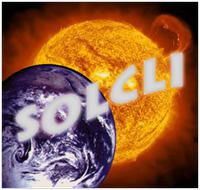-

- Haigh
The need to distinguish natural from anthropogenic causes of climate change places significant emphasis on quantifying and understanding any impact of the Sun. I will outline what is known about variations in solar output and review the evidence for solar influences on climate over a range of timescales. When the Sun is more active our work shows the response in temperature is not a warming of the tropics but mainly of mid-latitudes, along with a weakening and poleward shift of the jet streams and storm-tracks. Using climate models we have found that an important factor driving this response is the absorption in the stratosphere of solar UV radiation and we have identified a dynamical coupling mechanism which transfers a solar signal from the stratosphere to the atmosphere below. Over the past few years the Sun has been in a state of very low activity and some satellite measurements have suggested that the solar spectrum has been behaving in a strange and unexpected way. The talk will finish with a discussion of recent work on the implications of these spectral variations.

